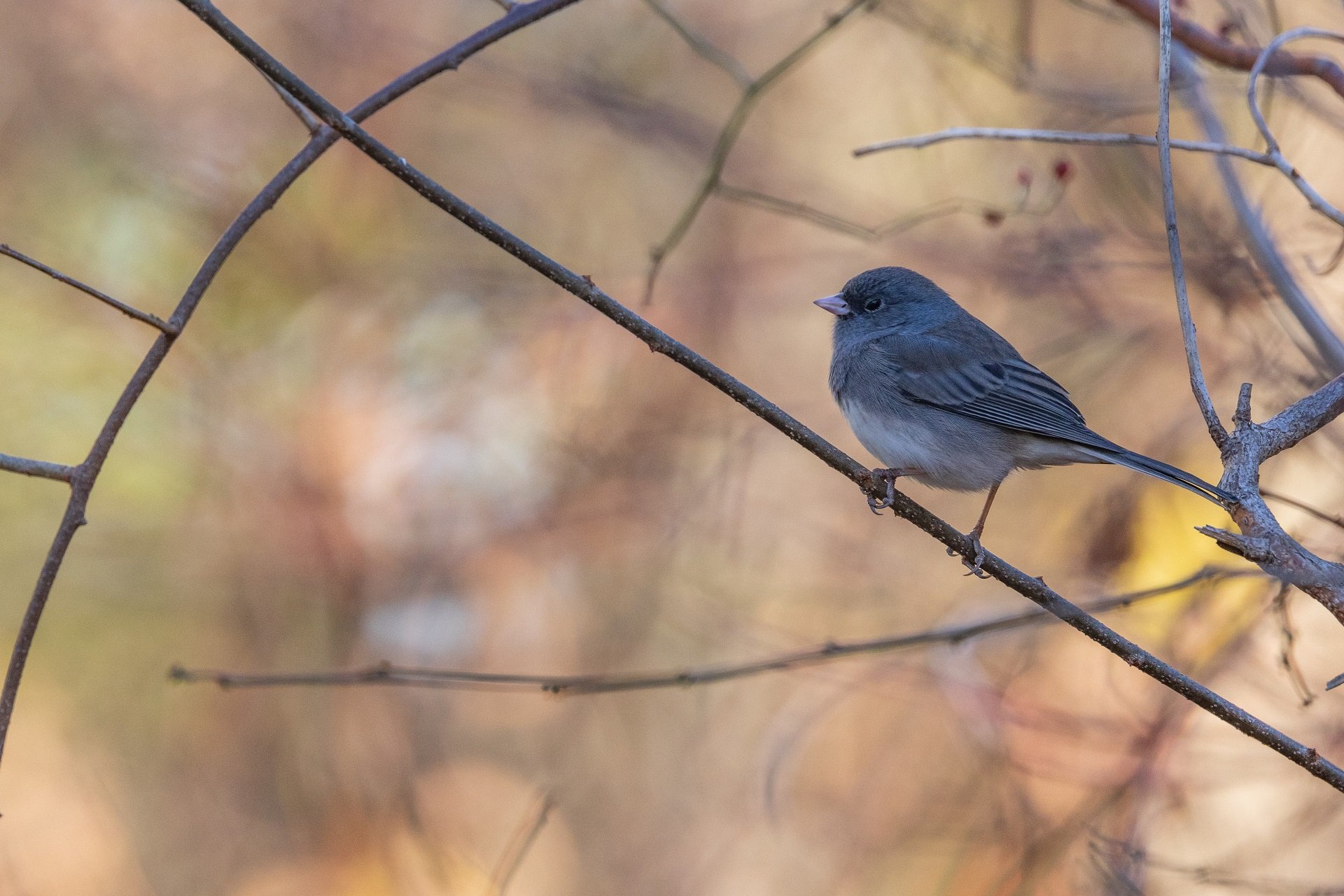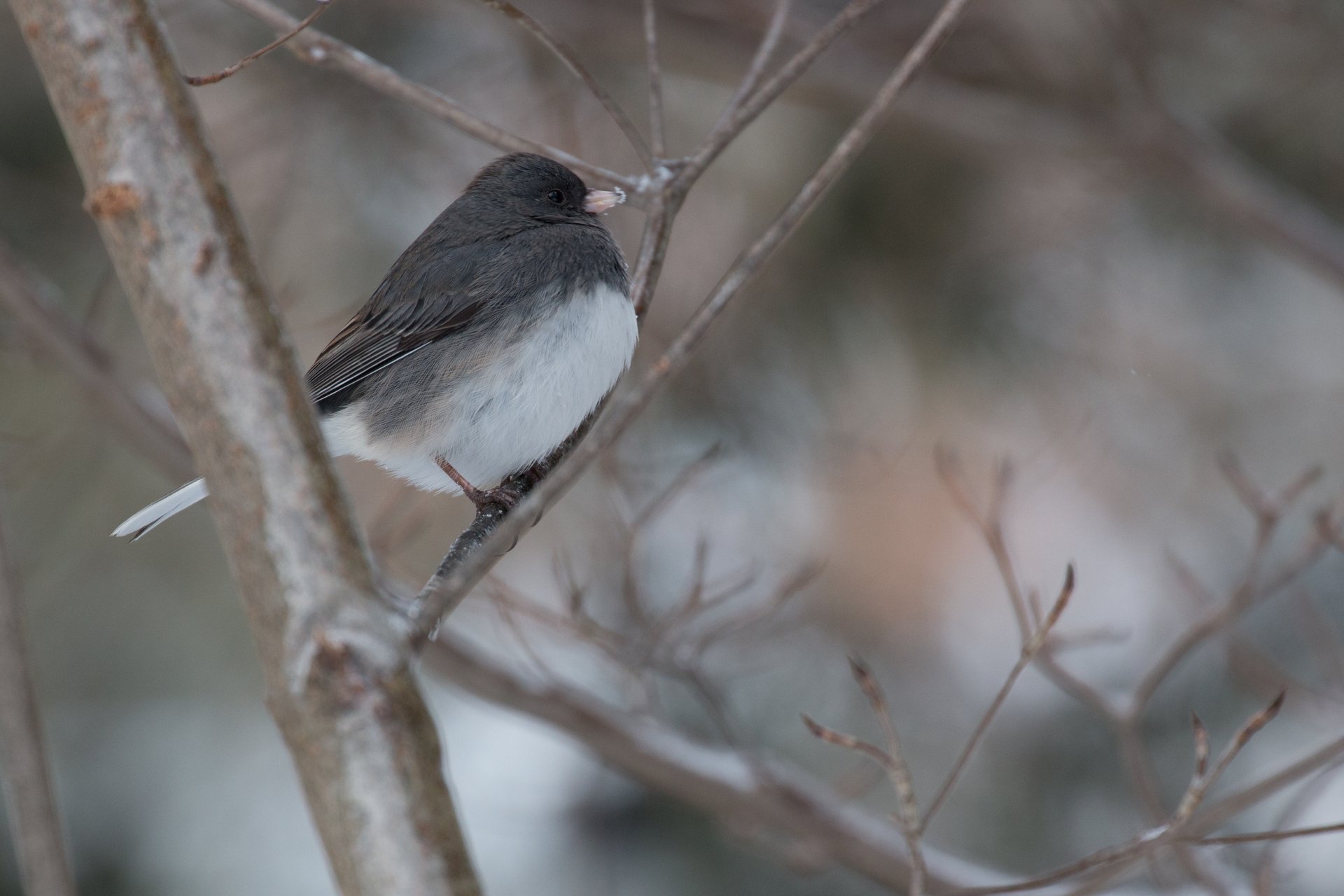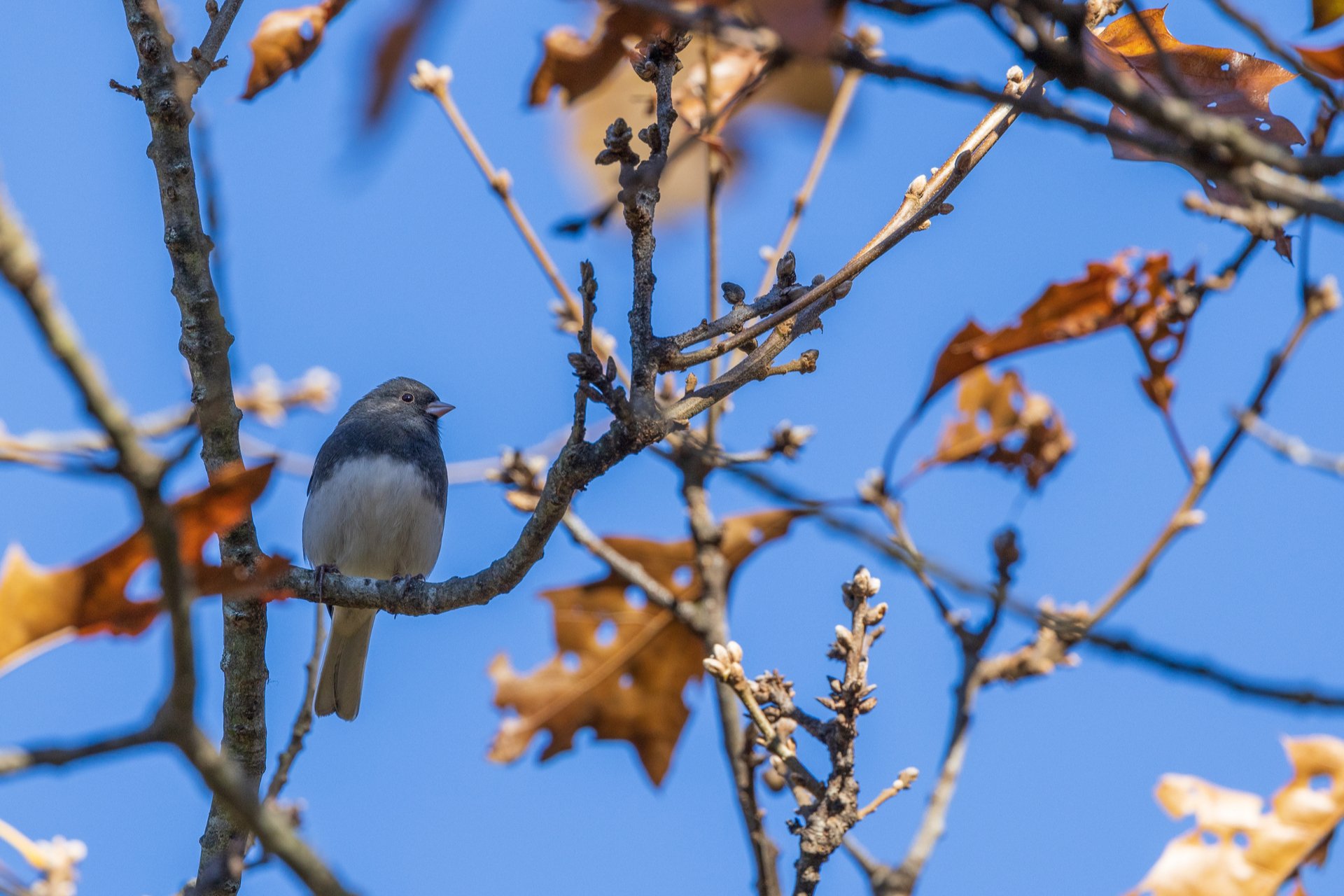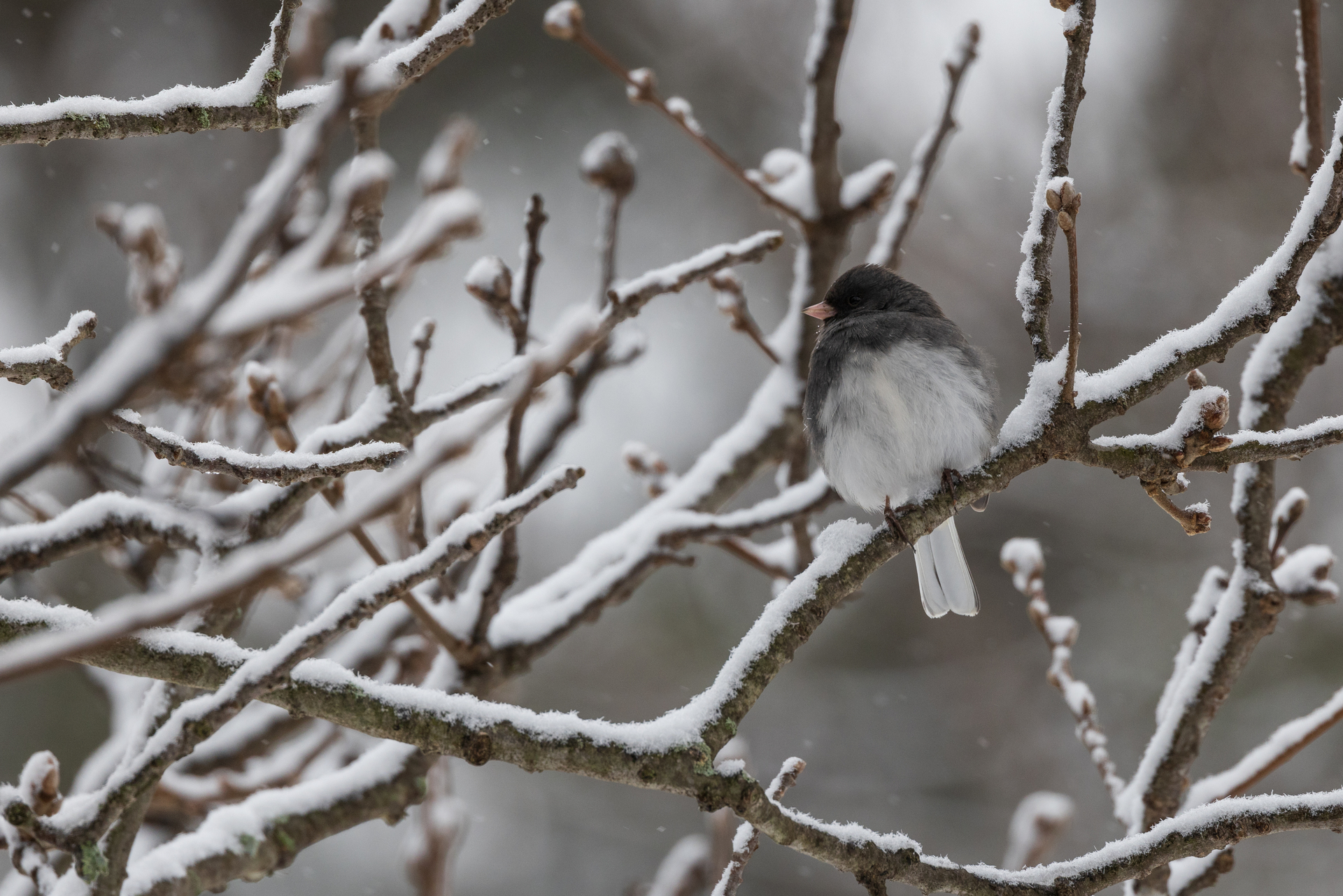Dark-eyed Juncos
If American Robins are the heralds of spring in New England, then surely the Dark-eyed Junco, also known as the “snowbird,” is the harbinger of winter.
These small, gray, seed-eating birds in the sparrow family are most often seen in Massachusetts from fall migration in October to spring migration in April. But what many people might not realize is that juncos can be found in the Commonwealth year-round, and often breed in our conifer forests.
How to Identify Dark-eyed Juncos
Juncos are among the easier birds to identify. Males are a uniform slate gray on their back, wings, and head, with a clean white belly. Females can have varying amounts of brown mixed with the gray.
Unlike all other sparrows in Massachusetts, both males and females lack streaks or stripes of any kind on their face, breast, or belly.
Dark-eyed Junco Behavior
Seed eaters, juncos forage on the ground, hopping along in small social groups and uttering single high buzzes and short repetitions of one note: tew-tew-tew-tew. When alarmed, juncos will fly to the nearest cover (usually a bush or low tree), flashing bright white stripes on either side of their tails as they flutter away.
Dark-eyed Junco Call
Where Can I See Dark-eyed Juncos?
Dark-eyed Juncos are regular breeders throughout western Massachusetts, east to Worcester County. They can be found year-round, often breeding in conifer forests. Their breeding and wintering numbers over the past few decades appear to be more or less stable.
How Mass Audubon is Supporting Birds in Massachusetts
Mass Audubon works at our wildlife sanctuaries and beyond to ensure that the nature of Massachusetts continues to thrive. By scientifically monitoring Massachusetts birdlife, Mass Audubon informs important conservation decisions and launches targeted initiatives to help at-risk species. In addition, fostering healthy habitats, supporting native species, and educating people about the importance of nature conservation is critical to our success. Learn more about our work
How You Can Support Birds in Massachusetts
Mass Audubon supports birds like the Dark-eyed Junco every day, but we couldn’t do it without the support of our 160,000+ members.
Help support Dark-eyed Juncos, and birds like them, by becoming a member today.
Upcoming Bird Programs
Wednesday Morning Birding
-
Newburyport and vicinity
-
Wednesday, April 24
9:30am-12:30pm
Adults
Birding by Ear at Wompatuck State Park
-
Thursday, April 25
8:00-10:30am
Adults
Friday Morning Bird Walks
-
Broad Meadow Brook Conservation Center and Wildlife Sanctuary, Worcester
-
Friday, April 26
7:00-9:00am
Adults
Stay Connected
Don't miss a beat on all the ways you can get outdoors, celebrate nature, and get involved.






